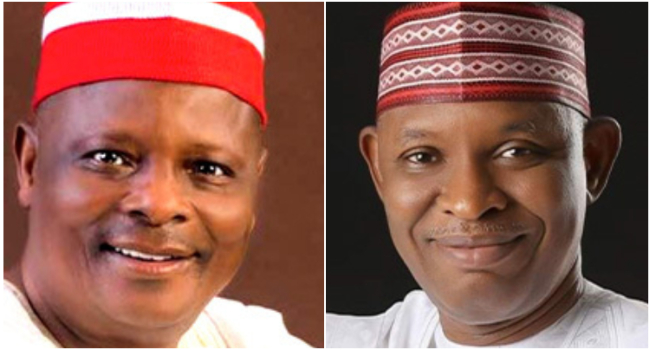The New Nigeria People’s Party (NNPP) finds itself entangled in a web of internal conflict, stemming from a power struggle that has escalated into a full-blown leadership crisis. The dispute revolves around the authority within the party and has led to a series of suspensions, counter-suspensions, and conflicting claims of legitimacy. At the heart of the turmoil is the question of who holds the reins of the NNPP and the rightful claim to represent the party’s interests. The ongoing conflict threatens to fracture the party and undermine its political standing as factions vie for control.
The NNPP’s National Publicity Secretary, Ladipo Johnson, clarified the party’s official stance, asserting that Kano State Governor Abba Yusuf and former Governor Rabiu Kwankwaso remain bona fide members of the NNPP. Johnson emphasized that only the faction led by Ajuji Ahmed, recognized by the Independent National Electoral Commission (INEC), possesses the legitimate authority to speak on behalf of the party. This assertion underscores the legal and administrative dimension of the crisis, with INEC’s recognition playing a crucial role in determining the legitimate leadership structure. Johnson’s statement aimed to dispel the confusion surrounding the status of prominent figures within the party and to reinforce the legitimacy of the Ahmed-led faction.
The leadership tussle traces its roots back to a power struggle involving one of the party’s founders, Dr. Boniface Aniebonam. According to Johnson, Aniebonam’s attempt to exert undue influence over the party’s National Executive Council (NEC) and National Working Committee (NWC) resulted in his suspension. This incident marked a turning point in the internal dynamics of the NNPP, setting the stage for further escalation and fracturing of relationships within the party. Johnson’s account reveals a clash of personalities and ambitions, with Aniebonam’s perceived overreach triggering a backlash from other party leaders.
The crisis deepened with the Kwankwaso-led faction’s rejection of the recent national convention, which saw the election of Dr. Agbo Major as the new national chairman. This convention, held in Lagos, was attended by delegates from across the country, but the Kwankwaso faction disputed its validity, further exacerbating the internal divisions. The rejection of the convention’s outcome highlights the deep mistrust and lack of consensus within the NNPP, with different factions challenging each other’s legitimacy and authority.
The unfolding events within the NNPP reveal a complex interplay of power dynamics, personal ambitions, and ideological differences. The struggle for control of the party machinery has created a volatile environment, characterized by accusations, counter-accusations, and a general atmosphere of uncertainty. The competing claims of legitimacy by different factions further complicate the situation, making it difficult to discern the true power structure within the party. The internal strife threatens to undermine the NNPP’s ability to function effectively as a cohesive political entity and could have long-term implications for its electoral prospects.
The future of the NNPP hangs in the balance as the leadership crisis continues to unfold. The ability of the party to resolve its internal conflicts and present a united front will be crucial for its survival and relevance in the Nigerian political landscape. The ongoing struggle for power not only jeopardizes the party’s internal stability but also casts a shadow over its ability to effectively represent the interests of its constituents and contribute meaningfully to the nation’s political discourse. The resolution of the crisis requires a concerted effort from all stakeholders to bridge the divides, rebuild trust, and establish a clear and undisputed leadership structure that can guide the party forward.














